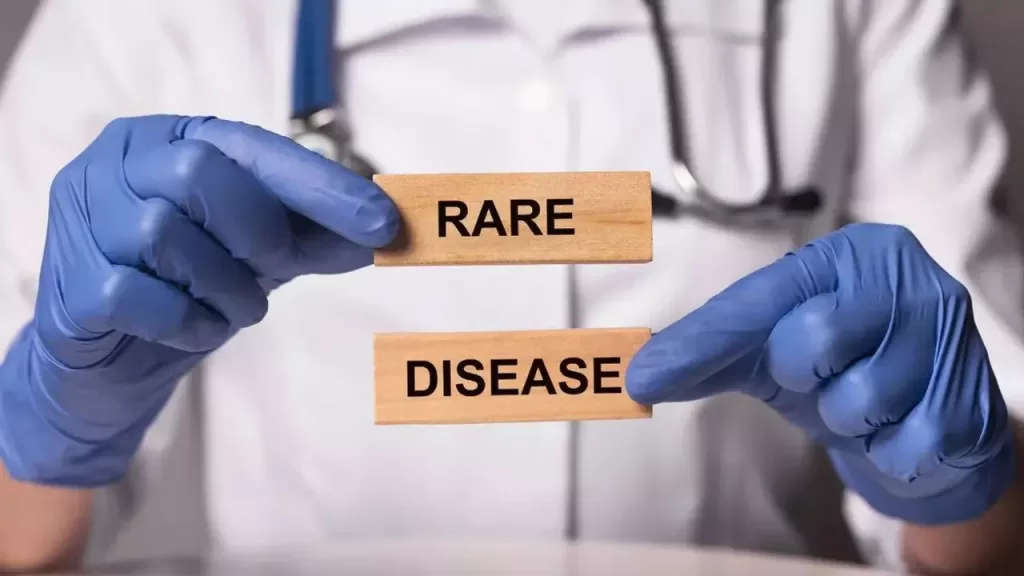Johannesburg, 28 February 2024: Rare Disease Day, observed globally on the last day of February each year, serves as an essential platform for uniting patients, their families, caregivers, medical professionals, researchers, policymakers, and the broader community. This day is dedicated to raising awareness and support for patients with rare diseases, who frequently face challenges in gaining recognition and representation.
Rare Disease Day 2024 calls upon the South African community to support those affected by rare diseases. Through advocacy, education, and collaboration, we can make a significant difference in their lives.
A disease is defined as ’rare’ when it affects fewer than 1 in 2,000 people.1 Currently, there are more than 7,000 known rare diseases, affecting more than 300 million people worldwide.1-2 Rare diseases are often misunderstood, with some patients spending up to 10 years waiting for an accurate diagnosis.3,4

“Rare diseases might be individual in nature, but collectively they represent a significant portion of our population that cannot be overlooked,” says Kelly du Plessis, Founder and CEO of patient advocacy group, Rare Diseases SA. “There are more than 4.1 million individuals in South Africa living with a rare disease, yet many of them, as well as their families, are often left coping alone and in silence. Years of uncertainty can be physically, mentally and financially taxing.”
“High costs and limited access to treatments place a significant burden on patients and their families. In the interest of equity, we are committed to bridging the gap in care and support for these patients, ensuring they are not left behind in our healthcare system,” says du Plessis.
For more than 40 years, Sanofi has been a pioneer in rare disease science, innovation, and support. It has rallied its employees and resources to help those affected, along with their families and healthcare providers, who may be struggling to reach accurate diagnoses and manage their care5. Despite this, there are still unmet needs.
Monique Nel, Medical Advisor for Rare Diseases at Sanofi South Africa, has noted an increase in rare disease diagnoses within both public and private healthcare sectors. “Collaboration with various stakeholders to enhance the management and understanding of diagnostic options for rare disease patients is crucial. Collectively, we need to expand scientific knowledge and develop more effective treatments to improve the quality of life for those affected by rare diseases.”
Nel says Sanofi’s rare disease patient registries, which have been collecting data for over 30 years, are among the most extensive sources of real-world information on rare diseases globally. These registries, spanning 65 countries with over 920 sites and more than 18,000 patients, support the publication of new findings on treatment outcomes and ongoing research, thereby contributing to innovative care for rare disease patients.
Equity in diagnosis
There’s work to be done to achieve equitable representation and support, along with fair access to proper diagnoses and treatment. Given the serious nature of many rare diseases, faster, more accurate answers are the key to survival for some. For example, newborn screening can drive equity in diagnosis for the rare disease community, giving the littlest patients, who can’t speak for themselves, a fighting chance from the start. The earlier the diagnosis, the sooner a clinician can initiate an intervention, providing a better chance to improve outcomes.
Equity in Innovation
Each person living with a rare disease has unique needs and their symptoms can vary greatly, with few, if any, treatments available. This understanding of patients’ unique needs drives Sanofi’s development of groundbreaking medicines for rare diseases – not just for conditions with no treatment options, but importantly, even for conditions where treatments do exist, because there is no one-size-fits-all approach.
Equity in Access
Sanofi envisions a world where people everywhere have equitable and sustainable access to therapies. The Rare Humanitarian Program, established in 1991, provides access to treatments across a variety of LSDs , for patients regardless of where they live or their ability to pay. To date, the Sanofi program has provided over 3,600 people globally in more than 100 countries with access to free treatment through the program. Currently, the programme supports over 1,000 people across more than 70 countries with access to therapy6.
Equity in Support
Support is at the core of what Sanofi does to help people living with rare diseases. This includes providing them with necessary therapies, connecting them with community resources, facilitating accurate diagnoses and ensuring research continues. Patient registries are a critical tool in supporting all of these efforts, as they aggregate real-world evidence, from across the globe, of all different types of people living with rare diseases.
Examples of rare diseases
Rare diseases come in many forms. Most are thought to be caused by abnormalities in genes or chromosomes, and some are passed from one generation to the next (inherited), while others occur randomly in a person who is the first in a family to be diagnosed (acquired).1
Some examples of more common rare diseases are Cystic Fibrosis, Duchenne Muscular Dystrophy (DMD), Huntington’s Disease, Sickle Cell Disease, and Amyotrophic Lateral Sclerosis (ALS), also known as Lou Gehrig’s disease.
These diseases are considered rare due to the low number of individuals they affect globally, yet they are among the more recognised within the rare disease community due to their impact on patients and families.
“Sanofi is dedicated to maintaining strong relationships with all stakeholders,” says Nel. “Through various initiatives, the company aims to revolutionise medical practice, share valuable insights, and overcome challenges in the treatment of rare diseases.”
Rare Disease Day 2024 serves as a call to action for the South African community and beyond to join forces in supporting the rare disease community. Through partnering with stakeholders and decision makers, we can transform the practice of medicine to help create fulfilling futures for people living with rare diseases. Together, we can deliver even better care for rare.





























